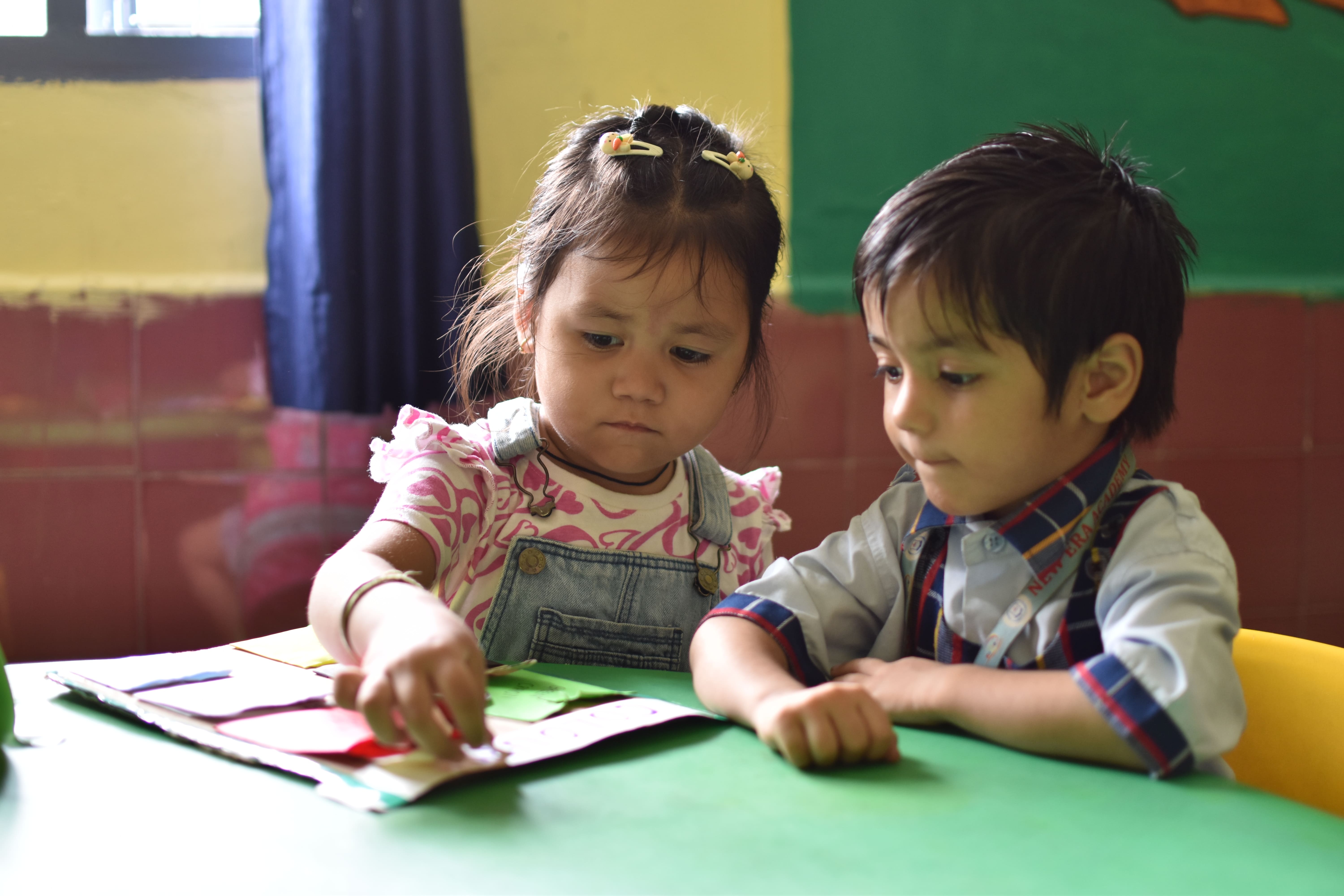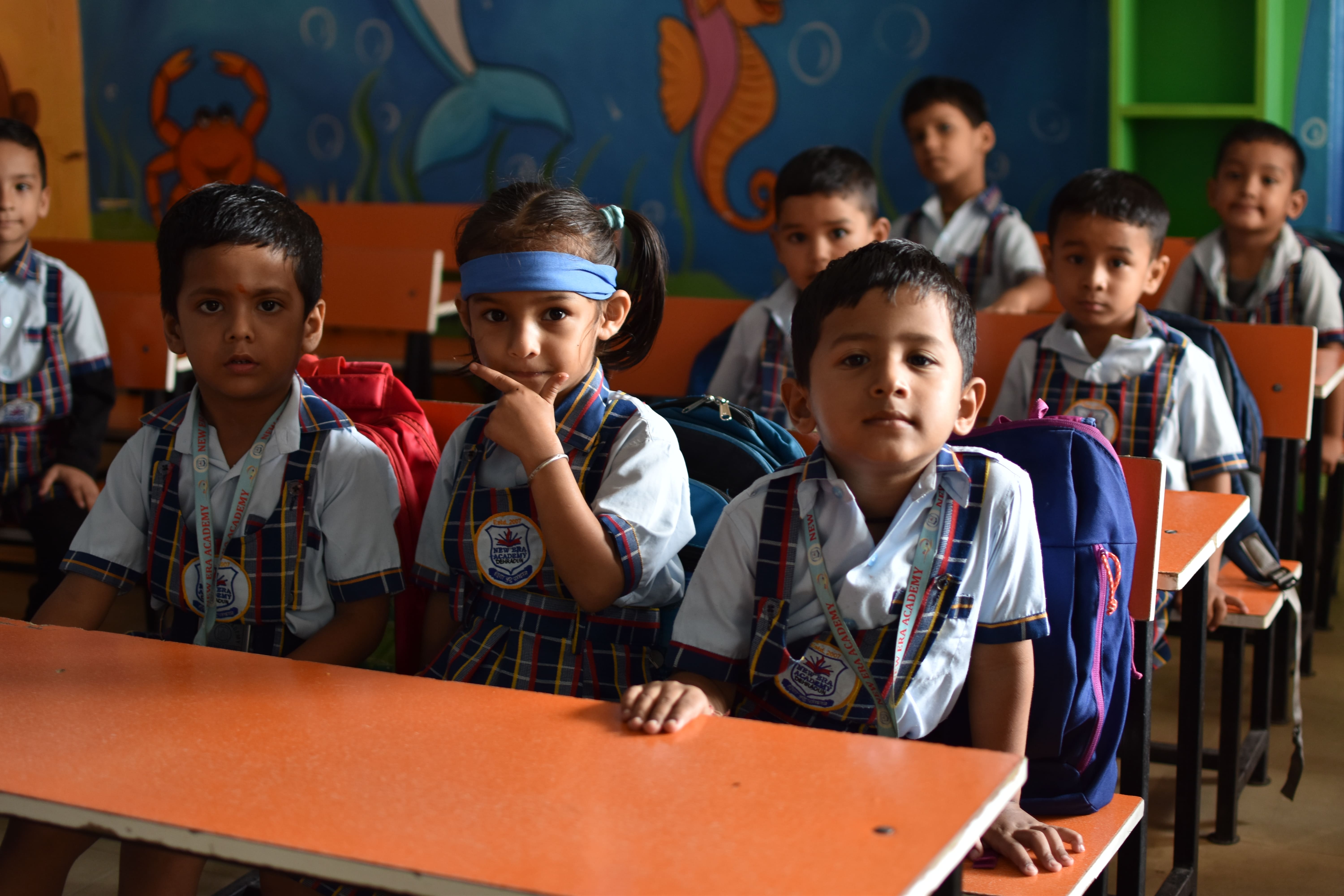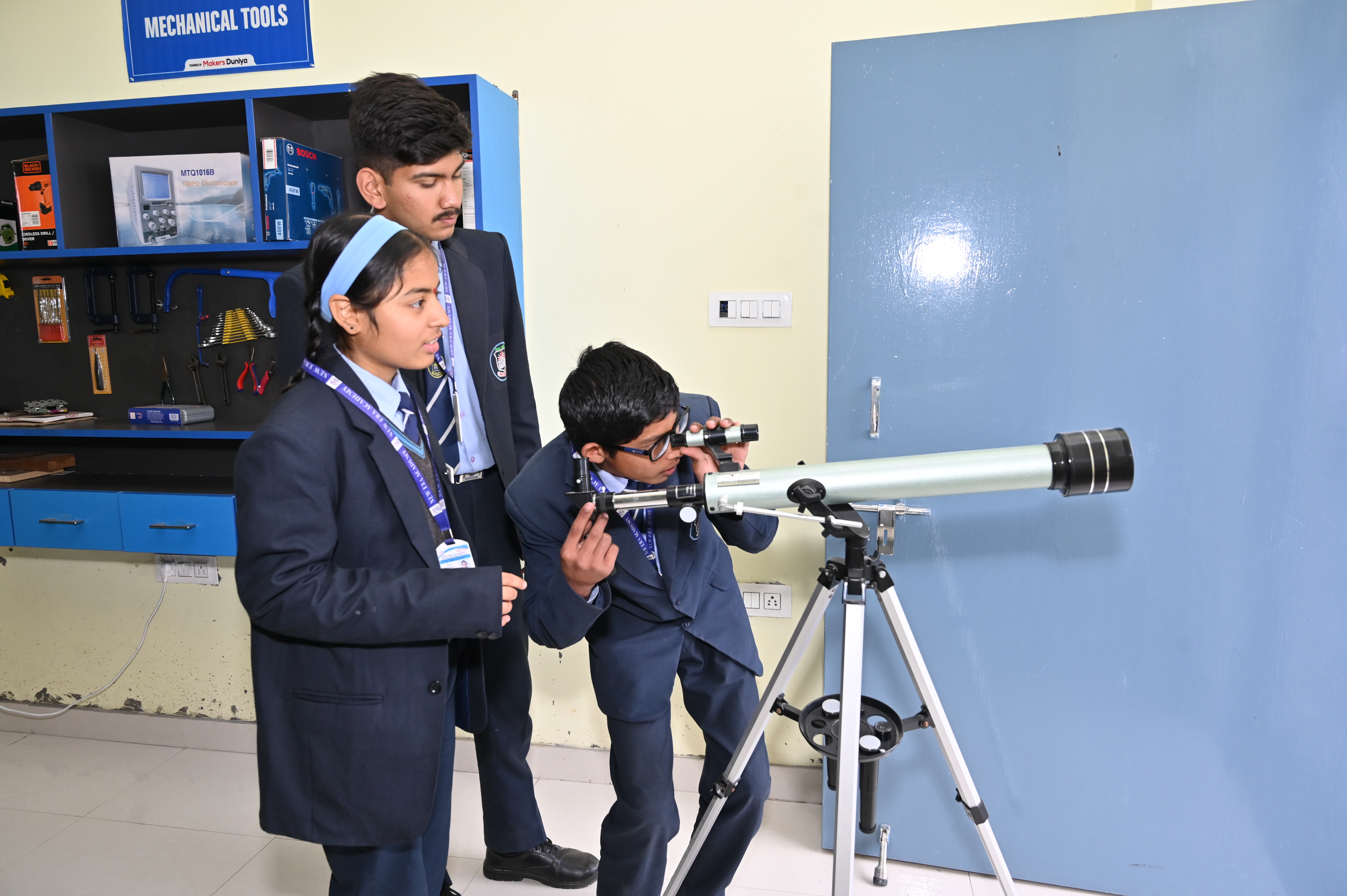


Pre-Primary Classes serve as the foundational stage of education for young children, typically ranging from ages 3 to 6. Key points include:
Focus on the cognitive, emotional, and social development of young children through play and structured activities.
Introduces fundamental concepts like letters, numbers, shapes, and colors in an engaging and interactive manner.
Encourages interaction with peers to develop social skills, teamwork, and communication abilities.
Promotes artistic expression through activities such as drawing, music, and storytelling.
Enhances fine and gross motor skills through hands-on activities and physical exercises.
Supports emotional development by helping children understand and manage their feelings and build self-confidence.
Establishes a consistent daily routine to create a sense of security and help children adapt to a structured environment.
Stimulates curiosity and a love for learning through exploratory play and discovery-based activities.
Focuses on building vocabulary and language skills through reading, conversation, and interactive storytelling.
Sets the groundwork for future academic success by fostering a positive attitude toward learning and school.

Primary Classes cover the fundamental stages of education for children typically aged 6 to 11. Key points include:
Introduction to essential subjects such as language arts, mathematics, science, and social studies.
Focuses on developing basic literacy and numeracy skills, including reading, writing, and arithmetic.
Encourages problem-solving and logical reasoning through age-appropriate challenges and activities.
Promotes collaboration, communication, and teamwork through group projects and classroom interactions.
Incorporates art, music, and physical education to nurture creativity and physical development.
Supports the development of emotional intelligence, empathy, and self-regulation.
Provides a consistent and supportive environment with clear routines and expectations.
Focuses on the needs of each student to support their academic and personal growth.
Encourages curiosity and a love for learning through interactive and experiential activities.
Builds the groundwork for more advanced studies and prepares students for secondary education.

Secondary Classes encompass education for students typically aged 12 to 16, covering middle and high school years. Key points include:
Introduces more complex subjects and concepts in areas like mathematics, science, literature, history, and social studies.
Offers opportunities for students to explore elective subjects and potential career pathways, such as technology, arts, and foreign languages.
Emphasizes higher-order thinking skills, including analysis, synthesis, and evaluation of information.
Prepares students for college or vocational training through rigorous academic standards and test preparation.
Supports personal growth, self-awareness, and the development of a strong work ethic and study habits.
Provides diverse opportunities for involvement in sports, clubs, and leadership roles to enhance personal interests and skills.
Includes career counseling and job-shadowing opportunities to help students make informed decisions about their future paths.
Offers guidance and counseling services to address adolescent issues and support mental health and well-being.
Encourages students to take responsibility for their learning, manage their time effectively, and make independent decisions.
Promotes involvement in community service and social responsibility projects to foster a sense of civic duty and engagement.